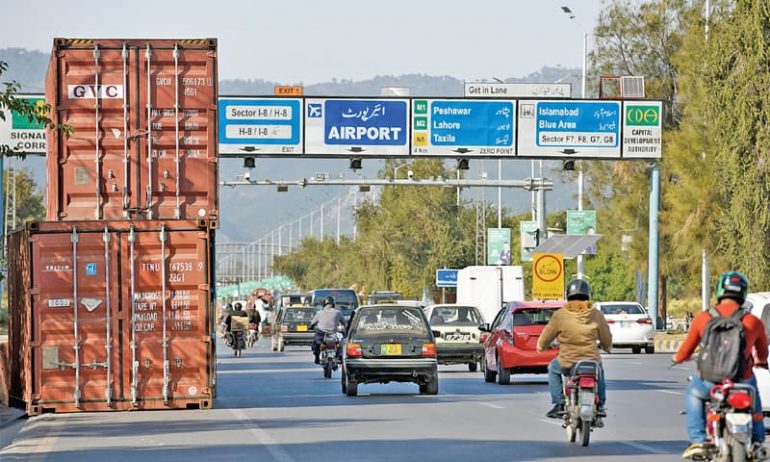The leadership of the All Pakistan Anjuman-e-Tajran (APAT) has rolled up their sleeves in Rawalpindi’s Faizabad Chowk to stage a sit-in today on Tuesday (26 October).
According to the mobilization timetable released on Monday, the caravans of the traders (from Punjab and Southern districts) will arrive at Bhera service/rest area at 12:00 p.m., from whence they would depart for Faizabad Chowk at 1:00 p.m. in the form of a massive rally.
The government has constructed deep ditches on G.T Road to prevent charged activists of the proscribed Tehreek-e-Labbaik Pakistan (TLP) from marching on the federal capital, the APAT has asked its supporters and office-bearers to take alternative routes including motorways.
The APAT caravans from Peshawar and Khyber Pakhtunkhwa would arrive at the Peshawar-Islamabad motorway toll plaza around 3:00 p.m. Furthermore, they will meet caravans from Lahore and other regions of the country and then depart for the Faizabad Chowk together.
Rawalpindi traders would arrive in Nawaz Sharif Park at 3:00 p.m., according to APAT Central General Secretary Naeem Mir, and then leave for Faizabad. Similarly, Islamabad traders will congregate at Zero Point and depart for the Faizabad Chowk at 3:00 p.m. Caravans from Azad Kashmir and Gilgit-Baltistan, on the other hand, will arrive at the venue directly, he added.
The APAT also staged a protest outside the Federal Board of Revenue (FBR) Islamabad office last month after the federal government promulgated the Tax Laws (Third Amendment) Ordinance-2021, which gives the FBR broad powers to disable non-filers mobile phone SIMs and disconnect their electricity and gas connections using artificial intelligence to match data with the National Database and Registration Authority (Nadra).
The protest was called off after the Markazi Tanzeem Tajran Pakistan (MTTP), a crucial alliance, broke out with the APAT.
MTTP President Kashif Chaudhry after holding talks with the FBR officials said, “The confusions and misunderstandings of small traders, especially with reference to the ordinance have been addressed.” Moreover, he stated that the main goal was to register professionals and unregistered entrepreneurs who operated out of their houses and that the use of point of sale (POS) did not apply to small traders who were not forced to install it.



